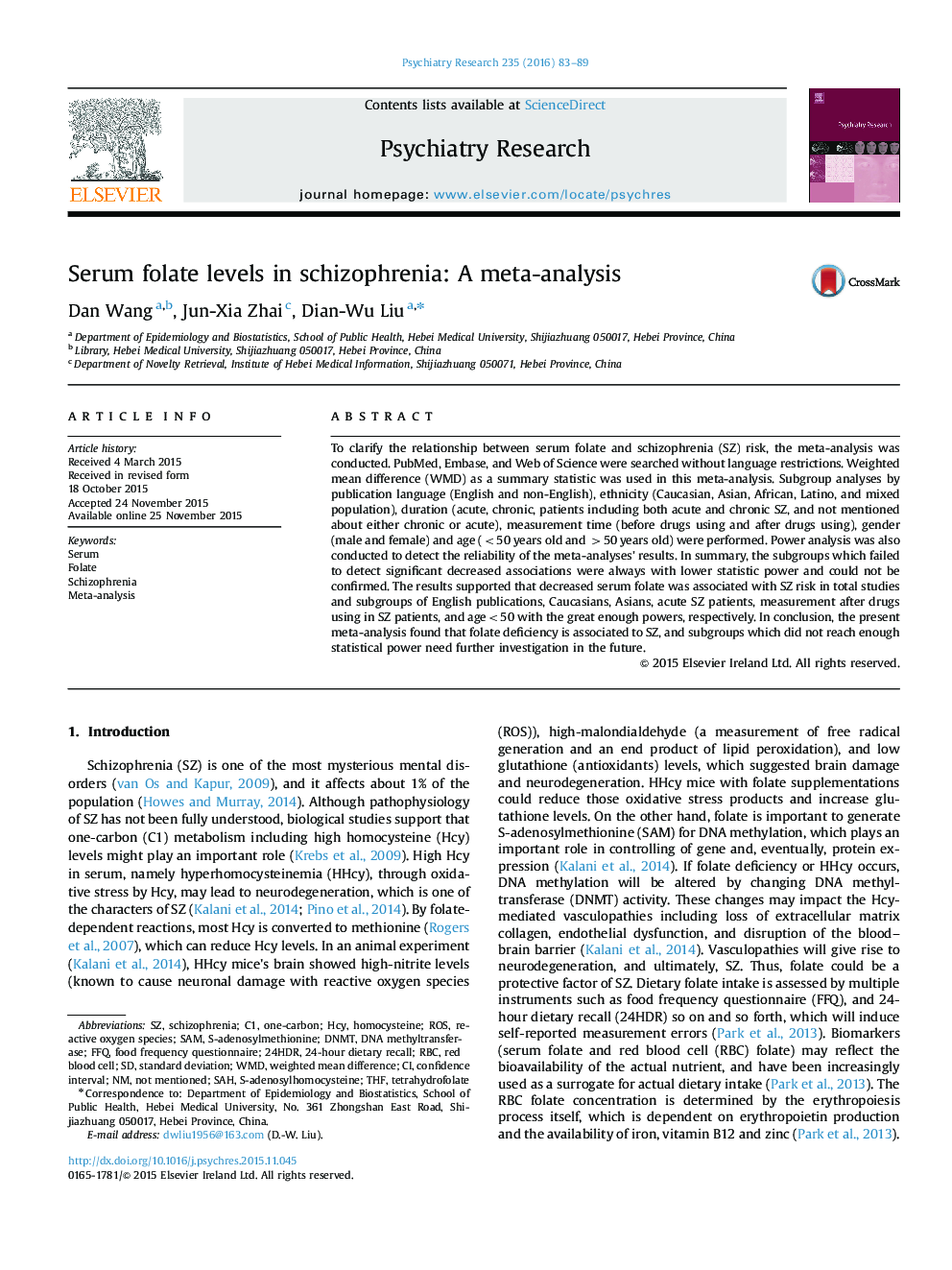| Article ID | Journal | Published Year | Pages | File Type |
|---|---|---|---|---|
| 333203 | Psychiatry Research | 2016 | 7 Pages |
•The first meta-analysis on the relationship of serum folate and schizophrenia.•Decreased serum folate is associated with SZ risk in total studies and subgroups.•The results were confirmed by statistic power analyses.•No significant publication biases were found in total and subgroup analyses.
To clarify the relationship between serum folate and schizophrenia (SZ) risk, the meta-analysis was conducted. PubMed, Embase, and Web of Science were searched without language restrictions. Weighted mean difference (WMD) as a summary statistic was used in this meta-analysis. Subgroup analyses by publication language (English and non-English), ethnicity (Caucasian, Asian, African, Latino, and mixed population), duration (acute, chronic, patients including both acute and chronic SZ, and not mentioned about either chronic or acute), measurement time (before drugs using and after drugs using), gender (male and female) and age (<50 years old and >50 years old) were performed. Power analysis was also conducted to detect the reliability of the meta-analyses' results. In summary, the subgroups which failed to detect significant decreased associations were always with lower statistic power and could not be confirmed. The results supported that decreased serum folate was associated with SZ risk in total studies and subgroups of English publications, Caucasians, Asians, acute SZ patients, measurement after drugs using in SZ patients, and age<50 with the great enough powers, respectively. In conclusion, the present meta-analysis found that folate deficiency is associated to SZ, and subgroups which did not reach enough statistical power need further investigation in the future.
